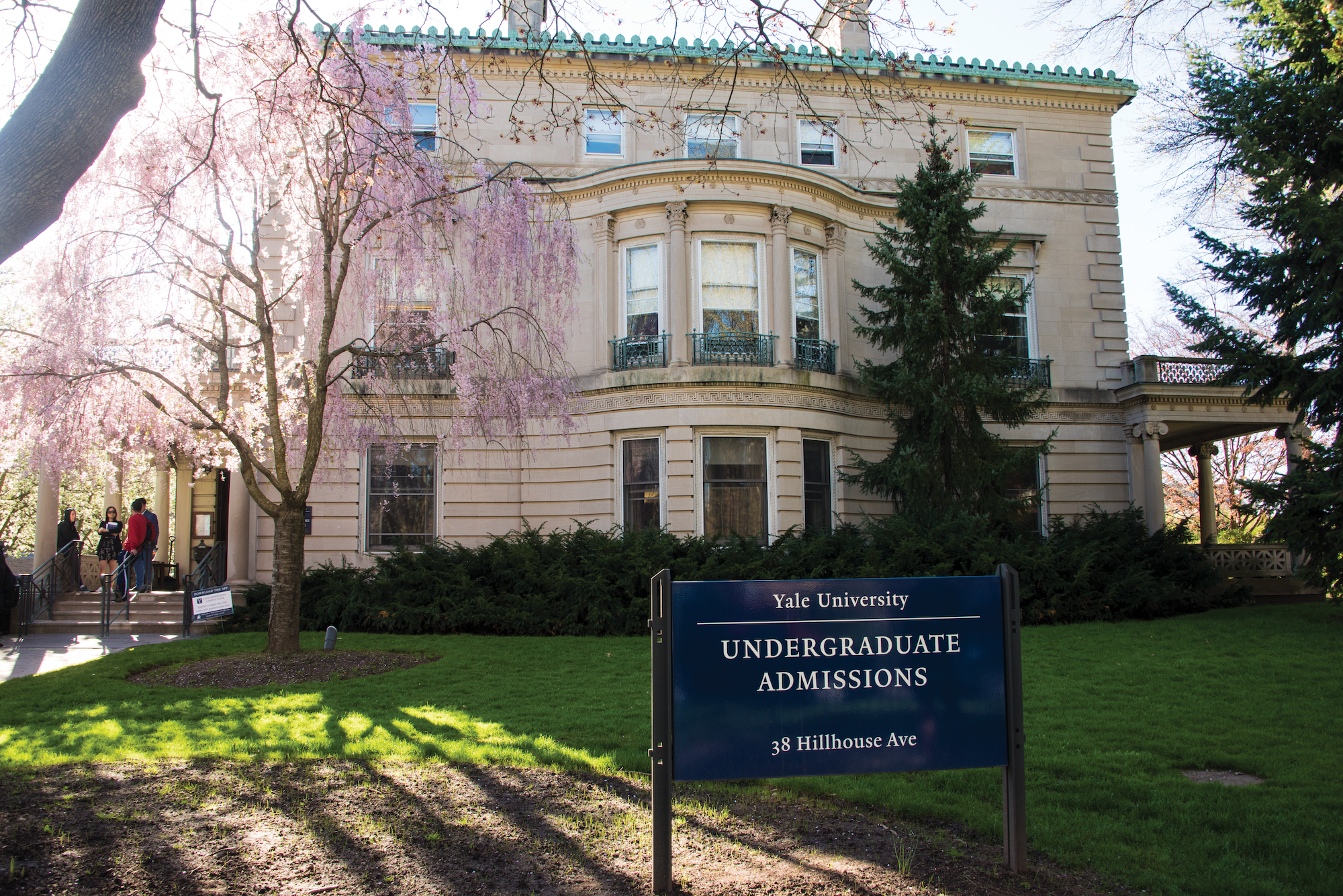Yale extends test-optional policy for 2022-23 admissions
Students applying to Yale’s class of 2027 will not be required to submit standardized test scores.

Madelyn Kumar, Senior Photographer
The Office of Undergraduate Admissions announced on Feb. 16 that it will not require standardized test scores from applicants during the 2022-23 admissions cycle.
The office attributed this policy to continued difficulties caused by the ongoing COVID-19 pandemic, making this the third year in which Yale will conduct a test-optional admissions cycle due to the pandemic. All of Yale’s Ivy League peers have suspended test requirements for the next round of applications. Harvard University and Cornell University have extended this policy through students enrolling in the fall of 2026 and the fall of 2024, respectively. Over 1,800 colleges in the United States will not require test scores for students planning to enroll during the fall of 2022, and the University of California system permanently did away with standardized testing in November.
“If public health conditions improve, Yale will decide on a long-term standardized testing policy in winter 2023,” Dean of Undergraduate Admissions and Financial Aid Jeremiah Quinlan wrote in an email to the News. “This decision will be informed by the data and insights generated from the 2021, 2022, and 2023 admissions cycles.”
In Apr. 2021, the News reported that test-optional policies are one factor behind recent record–setting numbers of applicants. Particularly, the waived testing requirement is linked with a more racially-diverse applicant pool, as well as a pool that consists of more international applicants.
Yale’s middle 50 percent of test scores consist of a 720-780 on the reading portion of the SAT, a 740-800 on the math portion of the SAT and a composite ACT score of 33-35.
According to the National Center for Education Statistics, an arm of the Department of Education, white students who graduated high school in 2019 earned an average score of 1114 on the SAT, Black students earned a 933, Hispanic students earned a 978 and Asian American students earned a 1223.
Bob Schaeffer, the executive director of FairTest, an organization that opposes the use of standardized tests in admissions, said that the test optional policy is a “win-win” for applicants and universities.
“Yale will experience more applicants, better academically qualified applicants, and more diversity of all sorts in its applicant pool,” Schaeffer wrote in an email. “For teenagers considering Yale, the policy extension will be reassurance that they will be evaluated as ‘more than a score.’”
According to the announcement, applicants who have taken standardized tests “should consider” submitting their scores, even if they do not seem to meet Yale’s median numbers. But Quinlan assured the News during past test-optional admissions cycles that applicants would not be penalized for not submitting their scores; rather, other aspects of their application will be given more weight in considering students’ fitness to attend Yale.
Although the office claims that ACT and SAT scores are “a significant predictor” of a student’s academic success during their undergraduate years, scores form just one aspect of the admissions process. Students without scores will be evaluated based on other factors such as high school transcripts, letters of recommendation and essays.
The announcement follows recent developments in the world of standardized testing.
In January, the College Board moved to administer the SAT online beginning in 2023 for international students and in 2024 in the United States.
Priscilla Rodriguez, a vice president at the College Board, said in a press release that “the digital SAT will be easier to take, easier to give, and more relevant.”
And on Jan. 24, the Supreme Court agreed to hear a challenge to affirmative action in a case that makes significant use of standardized test scores. The case alleges that Harvard and the University of North Carolina discriminate against Asian American and white applicants by accepting students of other races with lower standardized test scores.
The SAT debuted in 1926.







